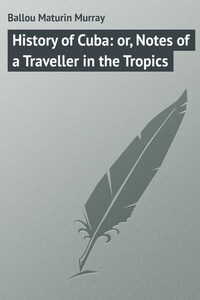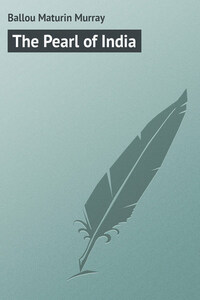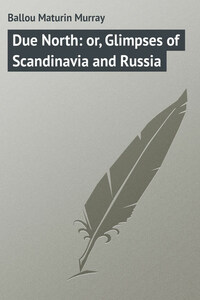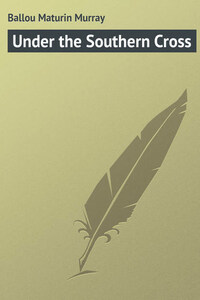The remarkable degree of interest expressed on all sides, at the present time, relative to the island of Cuba, has led the author of the following pages to place together in this form a series of notes from his journal, kept during a brief residence upon the island. To these he has prefixed a historical glance at the political story of Cuba, that may not be unworthy of preservation. The fact that the subject-matter was penned in the hurry of observation upon the spot, and that it is thus a simple record of what would be most likely to engage and interest a stranger, is his excuse for the desultory character of the work. So critically is the island now situated, in a political point of view, that ere this book shall have passed through an edition, it may be no longer a dependency of Spain, or may have become the theatre of scenes to which its former convulsions shall bear no parallel.
In preparing the volume for the press, the author has felt the want of books of reference, bearing a late date. Indeed, there are none; and the only very modern records are those written in the desultory manner of hurried travellers. To the admirable work of the learned Ramon de la Sagra, – a monument of industry and intelligence, – the author of the following pages has been indebted for historical suggestions and data. For the privilege of consulting this, and other Spanish books and pamphlets, relative to the interests and history of the island, the author is indebted to the Hon. Edward Everett, who kindly placed them at his disposal. Where statistics were concerned, the several authorities have been carefully collated, and the most responsible given. The writer has preferred to offer the fresh memories of a pleasant trip to the tropics, to attempting a labored volume abounding in figures and statistics; and trusts that this summer book of a summer clime may float lightly upon the sea of public favor.
The Island of Cuba – Early colonists – Island aborigines – First importation of slaves – Cortez and his followers – Aztecs – The law of races – Mexican aborigines – Valley of Mexico – Pizarro – The end of heroes – Retributive justice – Decadence of Spanish power – History of Cuba – The rovers of the Gulf – Havana fortified – The tyrant Velasquez – Office of captain-general – Loyalty of the Cubans – Power of the captain-general – Cupidity of the government – The slave-trade – The British take Havana – General Don Luis de las Casas – Don Francisco de Arranjo – Improvement, moral and physical, of Cuba.
The island of Cuba, one of the earliest discoveries of the great admiral, has been known to Europe since 1492, and has borne, successively, the names of Juana,1 Fernandina, Santiago and Ave Maria, having found refuge at last in the aboriginal appellation. Soon after its discovery by Columbus, it was colonized by Spaniards from St. Domingo, but was considered mainly in the light of a military depôt, by the home government, in its famous operations at that period in Mexico. The fact that it was destined to prove the richest jewel in the Castilian crown, and a mine of wealth to the Spanish treasury, was not dreamed of at this stage of its history. Even the enthusiastic followers of Cortez, who sought that fabulous El Dorado of the New World, had no golden promise to hold forth for this gem of the Caribbean Sea.
The Spanish colonists from St. Domingo found the island inhabited by a most peculiar native race, hospitable, inoffensive, timid, fond of the dance and the rude music of their own people, yet naturally indolent and lazy, from the character of the climate they inhabited. They had some definite idea of God and heaven; and were governed by patriarchs, or kings, whose word was law, and whose age gave them precedence. They had few weapons of offence or defence, and knew not the use of the bow and arrow. Of course, they were at once subjected by the new comers, who reduced them to a state of slavery; and, proving hard taskmasters, the poor, over-worked natives died in scores, until they had nearly disappeared, when the home government granted permission to import a cargo of negroes from the coast of Africa to labor upon the ground, and to seek for gold, which was thought to exist in the river-courses.2 Thus early commenced the slave-trade of Cuba, a subject to which we shall have occasion more fully to refer.
Cuba became the head-quarters of the Spanish power in the west, forming the point of departure for those military expeditions which, though inconsiderable in numbers, were so formidable in the energy of the leaders, and in the arms, discipline, courage, ferocity, fanaticism and avarice, of their followers, that they were amply adequate to carry out the vast schemes of conquest for which they were designed. It was hence that Cortez marched to the conquest of Mexico, – a gigantic undertaking – one a slight glance at which will recall to the reader the period of history to which we would direct his attention. Landing upon the continent, with a little band, scarcely more than half the complement of a modern regiment, he prepared to traverse an unknown country, thronged by savage tribes, with whose character, habits and means of defence, he was wholly unacquainted. This romantic adventure, worthy of the palmiest days of chivalry, was crowned with success, though checkered with various fortune, and stained with bloody episodes, that prove how the threads of courage and ferocity are inseparably blended in the woof and warp of Spanish character. It must be remembered, however, that the spirit of the age was harsh, relentless and intolerant; and, that if the Aztecs, idolaters and sacrificers of human victims, found no mercy at the hands of the fierce Catholics whom Cortez commanded, neither did the Indians of our own section of the continent fare much better at the hands of men professing a purer faith, and coming to these shores, not as warriors, with the avowed purpose of conquest, but themselves persecuted fugitives.














